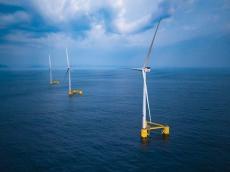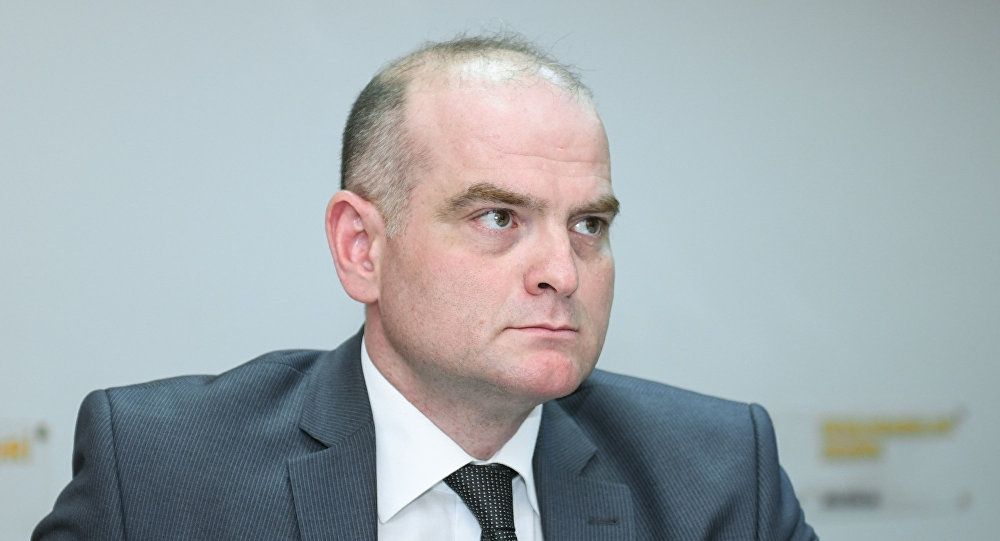|
|
TODAY.AZ / Business
SOCAR's vision for sustainable energy: Balancing growth & environmental responsibility [COMMENTARY]
09 July 2024 [13:00] - TODAY.AZ

The State Oil Company of Azerbaijan (SOCAR) plans to actively participate in COP29 and organize discussions to mitigate climate change effects, Afghan Isayev, Vice President, told Euronews. Isayev stressed SOCAR's collaboration with national and international oil companies for sustainable future projects, aiming to lead regional energy transformation. SOCAR aims to diversify its energy portfolio by 2035, balancing hydrocarbon and low-carbon businesses, and align its emissions with global industry standards.
Head of the Innovative Economic Research Centre of Azerbaijan Technical University, professor and economist Elshad Mammadov, stated to Azernews that increasing the share of the low-carbon business portfolio within SOCAR's overall business portfolio is positioned as one of its goals, which is quite understandable.

"This reflects a sensible approach because there is still significant potential in the country as a whole to achieve optimal levels of alternative electricity generation. I believe that the current share of alternative electricity generation is low, necessitating an increase in the low-carbon generation share within SOCAR's overall business portfolio. I anticipate that investments in these fields should yield positive results in the medium term, given that market saturation levels have not yet reached a point where investment efficiency would be diminished in these directions."
According to him, an oil company shouldn't set a critical goal of matching emissions levels with global industry leaders.
"Global companies operate with diverse approaches and varying economic impacts. Thus, aligning an oil company's strategy too closely with global industry standards can lead to significant issues. Therefore, it's crucial to prioritize local specifics. While international benchmarks should incorporate scientifically proven approaches that have shown positive effects, complete adaptation could result in serious negative consequences.
Currently, many companies have already reached market saturation in terms of alternative energy generation and low carbon emissions. SOCAR's advantage lies in exploring investment opportunities in these areas. Effective investments in alternative energy and low carbon emissions could yield medium-term benefits, pending market satisfaction."
Economist considers that the existing and expanding infrastructure for alternative energy generation certainly holds promise for returns.
"It will have an impact because, as I mentioned earlier, the baseline for comparison is low. For example, considering today's solar or wind electricity generation, since their share in the country's total energy balance is minimal, appropriate investments in these areas will be effective. However, it's essential to follow scientifically grounded approaches. Critical investments in these directions while reducing investments in traditional electricity generation could severely disrupt the energy balance."
"In my view, the share of hydro, wind, and solar electricity generation should be increased to 30%, with hydropower playing a significant role. This approach is generally optimal and appropriate under current conditions, and we should aim to achieve it by 2030. However, pushing for immediate jumps to 60% or 70% alternative generation, as seen in some European economies with advanced technological capacities, has caused significant issues. Therefore, we must ensure our country's energy balance through scientifically sound and realistic approaches."
URL: http://www.today.az/news/business/250433.html
 Print version
Print version
Connect with us. Get latest news and updates.
See Also
- 07 April 2025 [13:43]
Czech Ambassador emphasizes practical approaches to sustainable development at Baku Event - 07 April 2025 [13:18]
Ambassador Torma: Azerbaijan plays a key role in Europe's energy security and green transition - 07 April 2025 [12:15]
Feasibility study for Azerbaijan-Turkiye Green Energy Corridor officially launched - 07 April 2025 [11:13]
Baku hosts event on renewable energy and emission reduction - 07 April 2025 [10:53]
Azerbaijan aims to lead Eurasia’s green energy transition and energy connectivity - 05 April 2025 [10:30]
Uzbekistan, Azerbaijan forge strategic tourism partnership - 04 April 2025 [15:27]
Turkiye reaffirms commitment to regional cooperation and green energy - 04 April 2025 [15:17]
Minister Junghietu highlights Moldova’s commitment to Southern Gas Corridor and renewable future - 04 April 2025 [14:41]
Kazakhstan, Uzbekistan, and Azerbaijan launch green energy project to Europe - 04 April 2025 [14:16]
AI integration planned for ASAN Service centers by 2026
Most Popular
 Macron's fears are starting to come true
Macron's fears are starting to come true
 China deeply regrets, rejects Fitch Ratings downgrade
China deeply regrets, rejects Fitch Ratings downgrade
 Uzbekistan, Azerbaijan forge strategic tourism partnership
Uzbekistan, Azerbaijan forge strategic tourism partnership
 N. Korean leader inspects special operation units' training on day of Yoon's ouster
N. Korean leader inspects special operation units' training on day of Yoon's ouster
 Pakistan, US agree to deepen energy ties
Pakistan, US agree to deepen energy ties
 Relocation to Suqovushan village begins: 53 families to move
Relocation to Suqovushan village begins: 53 families to move
 Future supernova of first type find near Solar System for first time
Future supernova of first type find near Solar System for first time
